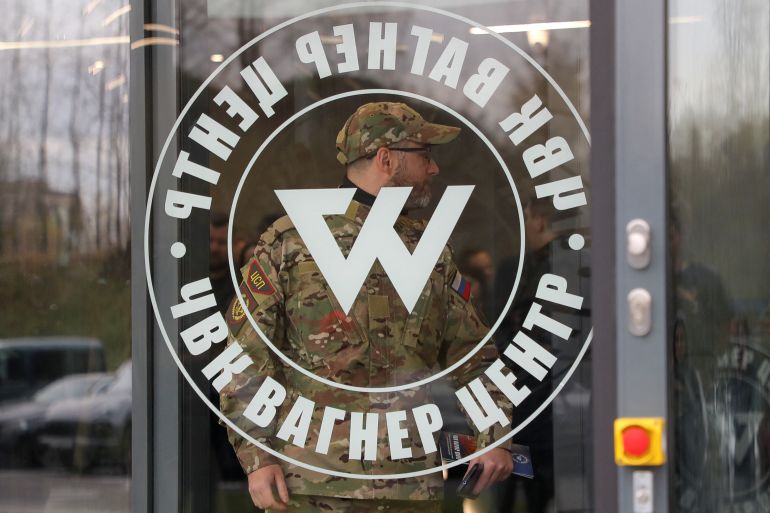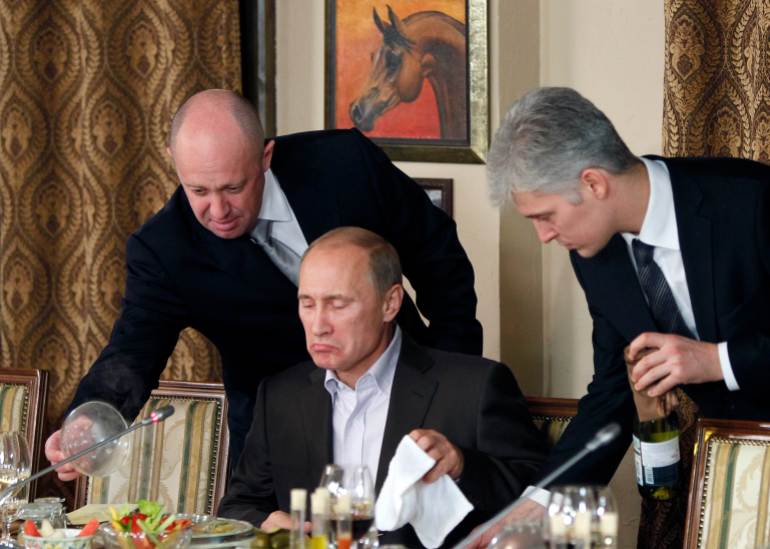Wagner chief frees prisoners who fought in Ukraine for Russia
Yevgeny Prigozhin filmed telling convicts who served six months on the front line, ‘don’t rape women’ in Russia.

The first batch of Russian prisoners who were offered amnesty in return for fighting in Ukraine has been released, the head of Wagner, the Russian mercenary group, said in a video.
Published by Russia’s Ria Novosti news agency, Yevgeny Prigozhin is seen in the video telling a group of men: “You’ve worked through your contract. You worked honourably, with dignity.”
Keep reading
list of 3 itemsUkraine says it killed Wagner mercenaries, who are they?
Burkina Faso denies paying Russia’s Wagner group with mine rights
Prigozhin said the men “should be treated with [the] deepest respect by society” after completing their six-month contracts in Ukraine.
“Don’t drink a lot, don’t use drugs, don’t rape women, do not get up to no good,” he added.
The Wagner Group, originally staffed by battle-hardened veterans of the Russian armed forces, has fought in Libya, Syria, the Central African Republic and Mali, as well as in Ukraine.
The video emerged after Zambia criticised Russia following the killing of a Zambian student, who was serving a prison sentence in Russia, on the frontline in Ukraine after he was granted amnesty for fighting in the conflict.
Prigozhin releases the first batch of Wagner’s convict recruits who managed to survive for 6 months in Ukraine back into their hometowns, instructing Russian police to treat these men with “the greatest respect.” Will they become the new oprichniks as Russia spins into darkness? pic.twitter.com/YYrtaKTF5A
— Yaroslav Trofimov (@yarotrof) January 5, 2023
Out of the shadows
Before the invasion of Ukraine, the Wagner Group, bankrolled by founder Prigozhin, a Russian oligarch known as “Putin’s chef”, existed in the shadows.
Last year, in an interview with Al Jazeera, Marat Gabidullin, an exiled whistleblower who fought for the group, said Wagner exists to redistribute power away from the military and use those who could become a security risk.
But since Russia invaded Ukraine in February 2022, Wagner mercenaries have been on its front line with a new public persona.

Conditions of release
In September, a video circulated of a man who resembled Prigozhin in a prison courtyard, offering contracts to prisoners to fight in the war in Ukraine.
But the contracts had a long list of conditions.
In the video, the unnamed man said, “If you arrive in Ukraine and decide it’s not for you, we will regard it as desertion and will shoot you. Any questions, guys?”
“No one gives themselves up,” he said, adding recruits should have grenades on them in case of capture.
“If you die, your body will be repatriated to the place you wrote down on the form.”
It was impossible to verify if the man in the video was Prigozhin, but his company, Concord, did not deny it was him.
“Of course, if I were a prisoner, I would dream of joining this friendly team in order to be able not only to redeem my debt to the Motherland, but also to repay it with interest,” Concord cited him as saying.